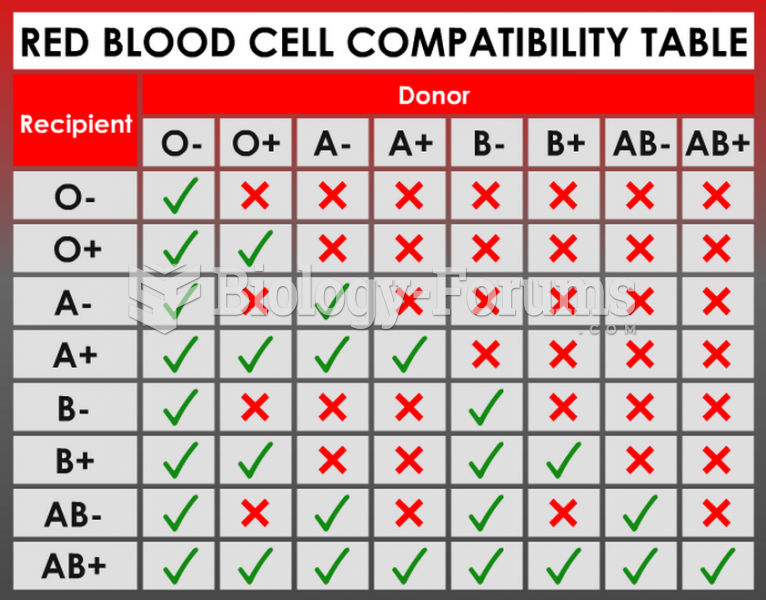Answer to Question 1
Correct Answer: 2,4,5
Rationale 1: Estrogen does not play a role in regulating blood pressure.
Rationale 2: The antidiuretic hormone (ADH) plays an important role in regulating blood pressure. ADH, also known as vasopressin, is a potent peripheral vasoconstrictor that quickly increases blood pressure.
Rationale 3: Testosterone does not play a role in regulating blood pressure.
Rationale 4: The renin-angiotensin-aldosterone system (RAAS) plays an important role in regulating blood pressure. As blood pressure falls, the enzyme renin is released by the kidneys. Through a two-step pathway, angiotensin II is formed, which subsequently increases CO and constricts arterioles to return blood pressure to original levels.
Rationale 5: The atrial natriuretic peptide (ANP) plays an important role in regulating blood pressure. ANP has multiple effects, all of which attempt to return blood pressure to original levels.
Global Rationale: The antidiuretic hormone (ADH) plays an important role in regulating blood pressure. ADH, also known as vasopressin, is a potent peripheral vasoconstrictor that quickly increases blood pressure. The renin-angiotensin-aldosterone system (RAAS) plays an important role in regulating blood pressure. As blood pressure falls, the enzyme renin is released by the kidneys. Through a two-step pathway, angiotensin II is formed, which subsequently increases CO and constricts arterioles to return blood pressure to original levels. The atrial natriuretic peptide (ANP) plays an important role in regulating blood pressure. ANP has multiple effects, all of which attempt to return blood pressure to original levels. Estrogen and testosterone do not play a role in regulating blood pressure.
Answer to Question 2
Correct Answer: 1
Rationale 1: Reflex tachycardia is an accelerated heart rate in response to a sudden drop in blood pressure.
Rationale 2: Ventricular tachycardia occurs when the ventricles of the heart beat greater than 100 beats per minute.
Rationale 3: Re-entry tachycardia is caused by abnormal conduction pathways in the myocardium.
Rationale 4: Supraventricular tachycardia is a rapid heartbeat when the heart rate is generated either in the atria or in the atrioventricular node.
Global Rationale: Reflex tachycardia is an accelerated heart rate in response to a sudden drop in blood pressure. Ventricular tachycardia occurs when the ventricles of the heart beat greater than 100 beats per minute. Re-entry tachycardia is caused by abnormal conduction pathways in the myocardium. Supraventricular tachycardia is a rapid heartbeat when the heart rate is generated either in the atria or in the atrioventricular node.







